Elaine: work experience to X-ray physicist
Her work as a senior scientist involves using established imaging techniques and applying them in novel ways to real world situations, to help save lives.
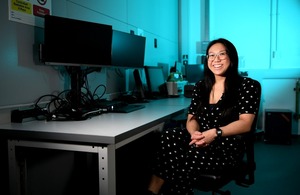
It’s been just over a decade since she first set foot in the Defence Science and Technology Laboratory (Dstl) with a week’s work experience as a school pupil - today she is a senior scientist trialling an X-ray robot.
Elaine is in the sensing and detection group working with backscatter technologies and has just taken in her first role as trial manager for a pioneering prototype.
Her work as an X-ray physicist involves using established imaging techniques and applying them in novel ways to real world situations which have the potential to save lives and protect the nation’s security.
She said:
“I’m really enthusiastic about what I do. The reason I come to work every day is because it’s so enjoyable and so interesting.
“It’s really exciting how far I’ve come. I didn’t ever expect to be doing this type of work in my life. It is really interesting and can be really impactful.
“Dstl is a really supportive environment that encourages freedom of thought. I’m incredibly proud of my work. I understand that not many people get to do anything like this. I love the problem-solving part of my work.”
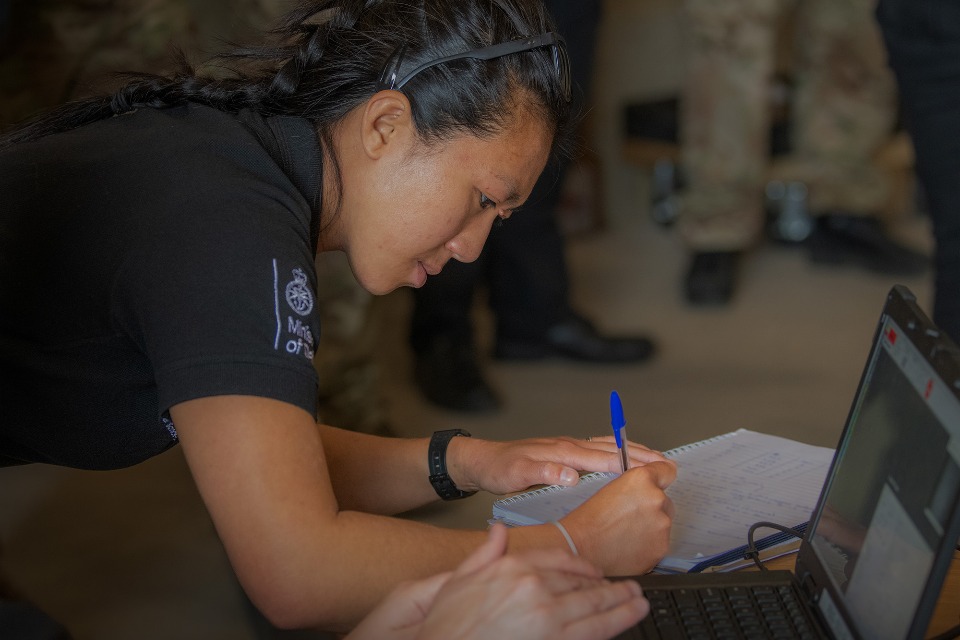
Elaine was introduced to Dstl during her week of work experience which she enjoyed so much she applied to work at our laboratories for her industrial placement, and spent a year working in electronic counter-measures.
She spent every summer throughout university travelling from Durham back to work at Dstl. She wanted to do something a bit more ‘physicsy’ and so moved into the sensing and surveillance group, even though she enjoyed her placement. When she graduated, 5 years ago, she started working on X-ray technologies.
She said:
“I love applying the technology - seeing the physical concepts being applied to real world situations and making a difference in the real world. At Dstl the science comes first.
“I get on really well with my team. I really love working with them. They are all so passionate and we have a lot of fun while we are doing our jobs.”
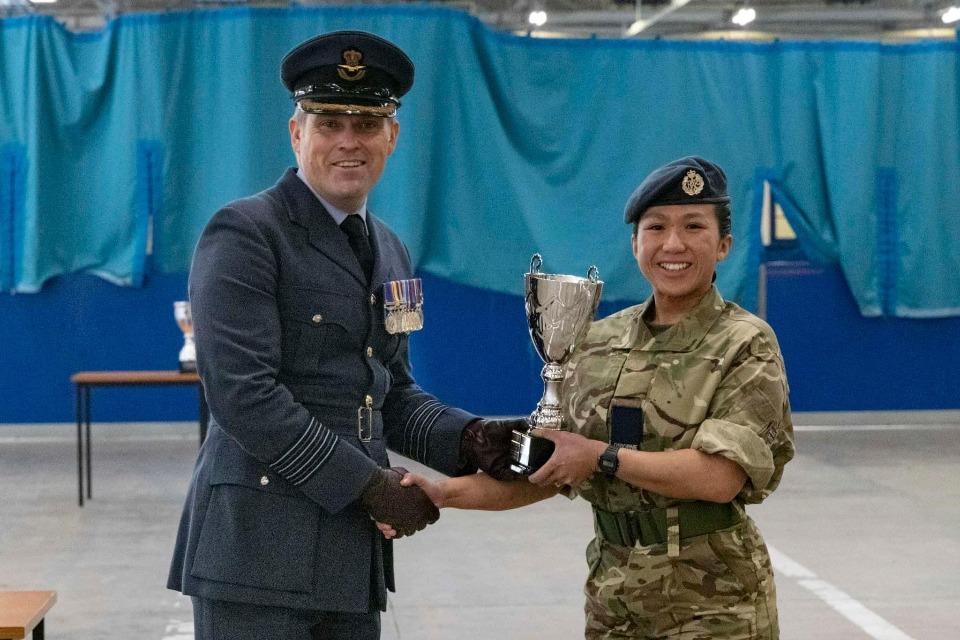
Working on pioneering science is not the only way she supports the military.
At age 14 she joined the Air Cadets and now Dstl supports her role as an RAF reservist.
Elaine said:
“I’m definitely most proud of deploying X-ray backscatter remotely for explosive ordnance disposal. I feel like that technology could really make a difference and save lives on the battlefield.
“Having the X-ray robot as my first project as a trials manager was intimidating but it was also really enjoyable.
“It’s very exciting to work on a project, see it as a real system and then trial it. It’s really rewarding. Not a lot of people get to see the work they have been doing for years come to fruition.”
X-ray robot could save lives on the battlefield
The project involved Elaine working on an UK-US collaboration which lead to a Rapiscan American Science and Engineering produced prototype that uses X-ray backscatter (XRBS) imaging technology mounted on a L3Harris T7 remote-controlled robot.
This could save lives by enabling military personnel to look inside containers – including cars and walls – for hidden weapons or explosive material without being near the potential threat.
Elaine’s work took her to Boston, Massachusetts, in the US, where she was trained to drive the robot and operate the prototype X-ray backscatter system which she then brought back to showcase on Dstl’s range.
She works on projects that benefit the Ministry of Defence (MOD) and the Home Office. Outside of her main role she also runs an Institute of Physics mentoring circle to help the next generation achieve their potential.
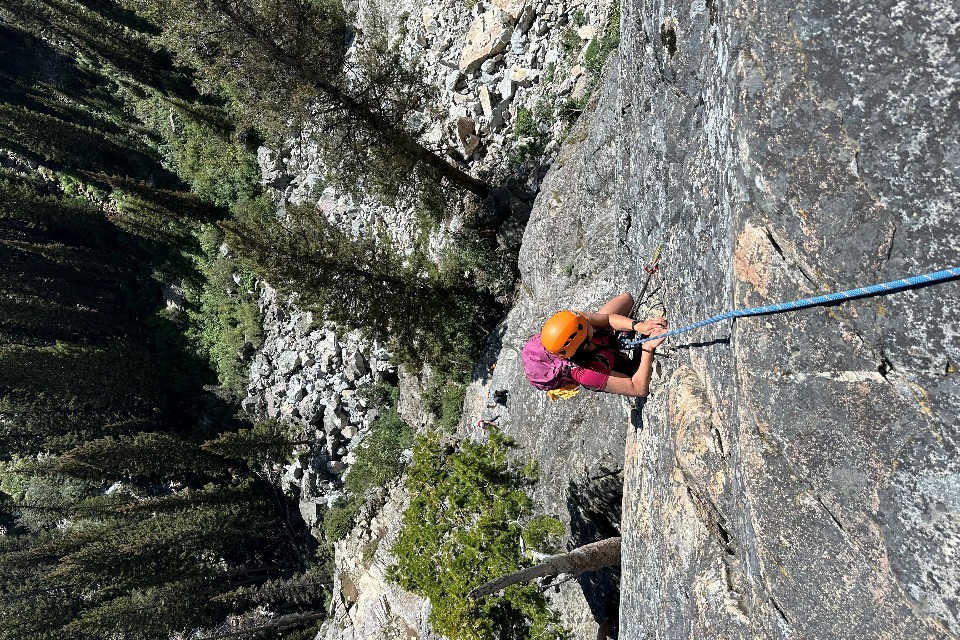
She said:
“I really enjoy supporting people through their continual professional development, helping people get through their applications so they can achieve chartered physicist status.
“One of the other roles I really enjoy is interviewing for new recruits. People fresh out of university, seeing their potential and recruiting some brilliant minds into Dstl.
“Physics is a very male-dominated area. I never found that held me back though – especially at Dstl - it just doesn’t really come in as a factor.
“I am really proud to be a female physicist encouraging the next generation as they join Dstl to really push the boundaries.”
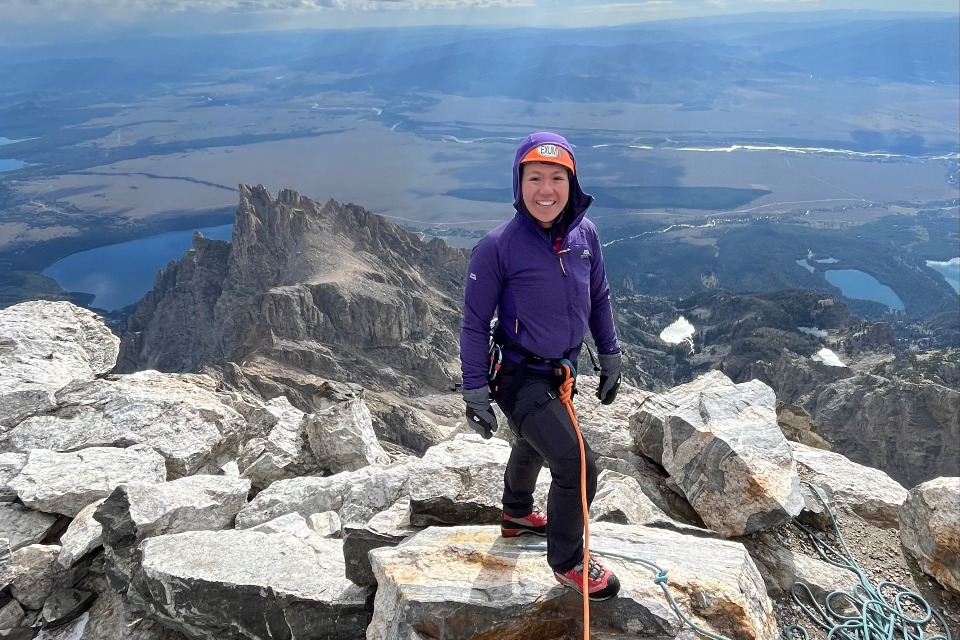
She’s also a keen mountaineer who enjoys hiking, climbing and camping. She’s conquered all the highest peaks in the UK and has been part of an expedition to the Himalayan mountain range in Asia where her team achieved their goal of reaching the Tesi Lapcha pass at a height of 5,700 metres.
Find out more about our world-class people and career opportunities with Dstl.